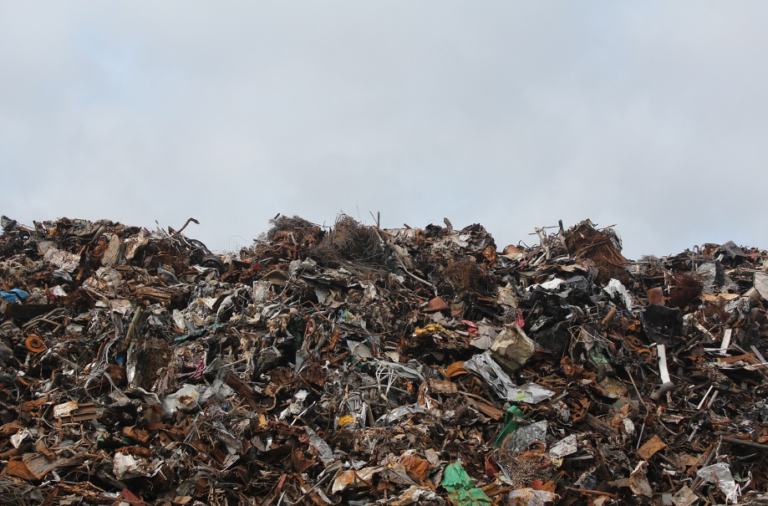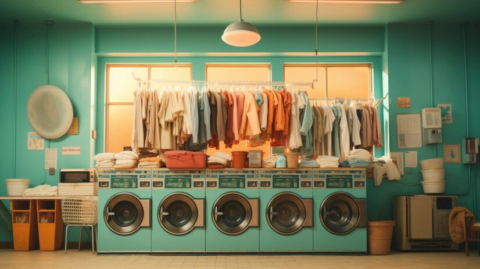Have you ever found yourself wondering where all that rubbish goes after being picked up by that noisy garbage truck early each morning? Your leftovers, used tissues and empty pizza boxes don’t simply vanish into thin air!
Refused materials in Sydney are collected, processed, recycled, and disposed of through waste recycling and processing facilities. This article will outline this process in more detail.
Old Furniture & More
If you have too much rubbish like furniture pieces in your house, garden, or work environment, it might be time to call in professional rubbish removal services. They offer all sorts of rubbish disposal solutions such as disposing of old furniture; as well as helping with household, office, and commercial trash; scrap metal collection services as well as garden waste collection in Sydney if that’s where your search lies, even if you’re in the suburbs and beyond.
Sydney’s trash generation rate is quite high, producing an estimated average of 11.9 kg of trash per household each week. To reduce waste production and maximize recycling efforts, people can reduce plastic use, switch to eco-friendly packaging materials, and repurpose household items – among many other ideas that may help.
Sydney generates much of its trash at local tip locations; however, most is recycled instead. There are 12 waste recycling, treatment, and landfill sites, in addition to 87 Community Recycling Centres (source: https://www.dcceew.gov.au) where people can go to recycle their rubbish and help lessen its burden on local landfills.
Sydney boasts numerous trash processing plants and management sites for recycling non-organic garbage like ash, mud, brine, and biomass as well as plastic packaging and electronic waste recycling. All facilities are overseen by the government for optimal operation.
Recycling facilities can be great resources, but they have their limits too. For instance, they can only process so much trash at one time; therefore, it is crucial to minimize your waste production as much as possible to conserve resources and the environment while saving on rubbish removal costs. Numerous services offer services for trash reduction – some free while others may offer discounted rates.
Construction Scraps
Home renovation, construction work, or yard clean-up often results in scraps that must be disposed of. Luckily, there are ways of disposing of this waste without harming the environment or endangering family and pet health – many rubbish removal services provide dumpsters to collect your rubbish; then sort and recycle after pickup – perfect for commercial construction projects!
Your local rubbish collection service should pick up scraps from your property once a week and transport them to a waste management facility for disposal or processing, such as an incinerator, landfill, or waste-to-energy plant. In certain areas of Australia, councils provide free trash pickup. This helps maintain cleaner neighborhoods while simultaneously helping lower greenhouse gas emissions.
Rubbish collection and disposal for construction projects is an integral component of waste management, helping communities maintain clean streets and homes. However, most individuals lack the knowledge needed to dispose of their rubbish properly – potentially endangering both themselves and the environment in some instances. If you need assistance disposing of large volumes of rubbish quickly, hire professional rubbish removal services instead.
Unwanted Items
If your garage, shed, or house has become overloaded with clutter for too long, it could be time to clear it out. Professional rubbish removal companies specialize in recycling as many of the unwanted items they remove as possible and saving space while helping the environment at the same time. In addition, these services also remove rubbish from commercial properties helping offices or shops declutter faster.
Australians produce an enormous amount of waste each year, much of which can be recycled – we recycle over 80 million plastic bags annually and 2.3 billion aluminum cans annually! But some waste Collection that isn’t properly handled, even, ends up in waterways or streets, potentially harming wildlife and damaging our water supply. You can prevent this by hiring a same-day rubbish removal service; these professionals will collect your rubbish and recycle as much of it as possible for optimal building health and sustainability.
Most people believe their rubbish disappears when they put out their bins on collection day; the noise of the garbage trucks and the smell of trash vans are enough to distract from what goes on behind the scenes. But your food wrappers, used tissues, and empty pizza boxes don’t just vanish into thin air – your waste travels along a journey from your home or office across the country to landfills, recycling centers, and processing plants.
Household Waste
Household waste, commonly referred to as residential trash, typically originates in residential homes and apartments and can contain various materials ranging from food scraps, paper, and glass and metal products. While household waste may be recycled or disposed of responsibly it should also be managed as efficiently as possible to minimize environmental impacts.
As societies become more automated and industrialized, household solid waste production has steadily increased as consumerism continues. More products are manufactured and packaged each day; as such, this type of rubbish poses serious threats to the environment if improperly discarded.
Most waste is collected and disposed of through community garbage collection services; however, some people discard hazardous household chemicals without considering how they might impact the environment or those handling wastes; these toxic chemicals pose a potential threat to our surroundings and may even lead to illness in people handling them.
Some communities do not provide garbage collection services at all, requiring residents to be responsible for their waste disposal. As a result, open drains and garbage piles become the focal points for waste, producing unpleasant smells while creating environmental threats such as soil and water contamination. Furthermore, such garbage piles attract rats that carry disease-carrying pathogens that threaten humans with serious illnesses.
Liquid household waste should never be dumped in landfills or solid-waste incinerators, including oil-based paints, solvents and cleaners, detergents, weed killers, insecticides, and mothballs. Misusing such products may harm the environment as well as put those handling them at risk of contracting diseases such as Hepatitis B virus infection.
Urban communities facing financial strain often struggle to secure regular garbage collection services, which means waste often ends up on the streets or public spaces for disposal or dumped into waterways and sewer systems, polluting groundwater supplies that affect human populations’ health while creating unpleasant odors and methane gas emissions.
Garage Junk
Garages can often become the repository for household junk. From old Christmas decorations to the drum set you used during your rocker phase, items accumulate quickly in these spaces. As such, finding what you need becomes challenging while the increased dust and mold build-up may aggravate allergies in those using it.
It’s essential that when cleaning out the garage, everything is separated into four piles or sections: keep, discard, sell, and donate. This will help make sorting through items quickly and efficiently while making garage cleaning an easier task. Keeping plastic bins, cardboard boxes or bags handy to store donated items safely out of sight may also come in handy for expedient storage of donation boxes as you go.
Once your “Keep” pile is clear, start working through the other two piles. For items that have been sitting idle in your garage for an extended period and still appear to be in good condition, contact local charities and see if they could take them off your hands – such as appliances such as fridges or window air conditioning units that were never actually used; furniture pieces like sofas, bookcases or tables left in there with plans of being reupholstered or restrain but never got around to doing it; etc.
If you have items that do not fall into either the “keep” or “sell” piles, it may be time to reach out for professional rubbish removal services like Junk King. They specialize in uncluttering storage areas so they are once more usable and enjoyable – plus their team is an organization expert; your garage could soon look as good as new!
Outdoor Rubbish
Many items that end up as waste originate in our homes and gardens, including twigs and branches, grass clippings, leaves, and animal waste. Unfortunately, much of this debris cannot be recycled properly and ends up in landfills, which in turn affects water, air, and soil quality while emitting methane gas – contributing to global warming.
A rubbish collection service can also help with green waste collection such as tree trimmings, leaves, and grass cuttings. They will take them directly to a recycling plant or transfer station and dispose of them on your behalf – saving both time and money in doing the hard work for you! Hiring such an agency saves both effort and resources.
An effective rubbish removal company typically charges according to how much space your trash occupies, so breaking larger items down into smaller ones will help both you and the collectors make things simpler for them. You should try bagging any relevant waste products where applicable but this may not always be necessary.
There are many ways we can reduce our wasteful habits. Starting a compost bin to recycle organic material or recycling metal items such as aluminum cans, plastic bottles, and newspapers are both helpful strategies. Many types of councils also provide curbside collection or drop-off facilities for recycling which make disposal easy and hassle-free.
Other forms of trash may be sent to local landfills and trash management facilities run by councils; these sites can be costly to operate and often require extensive infrastructure management; moreover, they can pose serious threats to wildlife and water sources if left accumulating for too long. It’s therefore wise to look for alternative forms of disposal.





